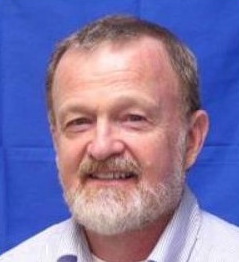Master's in communication management to start spring 2017
The Department of Communication is pleased to announce the creation of the Master of Science degree in communication management. The 36-credit degree is an innovative collaboration in which the Department of Communication provides the core courses, while students also choose from one of five outside concentrations from the Coggin College of Business, the M.P.A. program of the Department of Political Science and Public Administration, the College of Education and Human Services and the Brooks College of Health. The outside concentrations are business, nonprofit management, public management, leadership and public health. Student will learn media management, strategy, metrics, economics, and business/communication ethical and legal issues. The M.S. in communication management will teach students how to be a manager and leader in a communication company, such as a public relations firm, advertising agency, news outlet or production company. Graduates can also find employment in leadership positions at government agencies, healthcare companies and businesses that have an in-house public relations department. M.S. in communication management graduates will also be prepared for doctoral programs.
To make it easier for media professionals to get their master’s degree, most on-campus classes will take place after 6 p.m. Also, some of the courses will be delivered through online distance learning or hybrid instruction.
The Department of Communication will start taking applications in summer 2016. More details about admission requirements and the application process can be found on the department’s website.
The curriculum, listed below, shows the extent to which you can customize your coursework to fit your needs.
Major: Communication Management
Degree: Master of Science
Hours: 36
CORE REQUIREMENTS: (15 credits)
MMC 6990-Foundations of Communication Management (3 credits)
MMC 6991-Strategic Communication Theory (3 credits)
MMC 6992-Qualitative Research Methods in Mass Communication (3 credits)
MMC 6993-Quantitative Research Methods in Mass Communication (3 credits)
MMC 6994-Ethics in Communication Management (3 credits)
DEPARTMENTAL ELECTIVES: (3 credits)
Select 1 course from the following:
COM 5990-Organizational Communication (3 credits)
COM 5991-Lying & Deception (3 credits)
COM 5992-Listening (3 credits)
COM 5993-Theory and Research Methods in Health Communication (3 credits)
COM 5994-Small Group Communication (3 credits)
COM 5995-Interpersonal Communication (3 credits)
COM 5996-Interviewing: Theories and Methods (3 credits)
SPC 5990-Theories of Persuasion (3 credits)
MMC 5990-Political Advertising (3 credits)
RTV 5990-Media Management (3 credits)
MMC 5991-Internship in Communication Management (3 credits)
OUTSIDE COURSES: (12 credits)
Pick 1 of these 5 concentrations(Business, Public Health, Leadership, Nonprofit Management, or Public Management):
Business Concentration (Coggin College of Business)
Select 4 courses from the following:
MAN 6204-Organizational Theory (3 credits)
ISM 6021-Management Information Technology (3 credits)
MAN 6581-Entrepreneurship/Venture Capital (3 credits)
MAR 6805-Marketing Strategy (3 credits)
ECO 6415-Making Decisions with Data (3 credits)
ECP 6705-Economics of Business Decisions (3 credits)
Public Health Concentration (Brooks College of Health, Department of Public Health)
Select 4 courses from the following:
HSC 6603-Theory of Health Behavior (3 credits)
PHC 6102-Public Health Policy and Management (3 credits)
HSC 6585-Health Promotion and Health Education Strategies (3 credits)
HSC 6587-Program Planning in Health Promotion/Education (3 credits)
HSC 6215-Environmental Health (3 credits)
HSC 6505-Epidemiology (3 credits)
PHC 6050-Public Health Biostats I (3 credits)
Leadership Concentration (College of Education and Human Service’s Department of Leadership, School Counseling & Sport Management)
EDA 6191-Team Leadership (3 credits)
EDA 6196-Leadership & Learning Organizations (3 credits)
EDG 6285-Fundamentals of Program Evaluation (3 credits)
EDS 6130-Human Resource Management (3 credits)
Nonprofit Management Concentration (Dept. of Political Science and Public Administration)
PAD 6142-Management of Nonprofit Organizations (3 credits)
PAD 6164-NPO Stakeholder Relations (3 credits)
PAD 6208-Nonprofit Financial Management (3 credits)
Select 1 more course from the following:
PAD 5384-Civic Groups and Public Policy (3 credits)
EDA 6930-Grants Development & Project Design (3 credits)
HSC 6706-Grantsmanship (3 credits)
Public Management Concentration (Dept. of Political Science and Public Administration)
PAD 6060-Public Admin in Modern Society (3 credits)
PAD 6227-Government Budget and Finance (3 credits)
PAD 6417-Human Resources in Public/NP Management (3 credits)
Select 1 more course from the following: PAD 5000 to 6999 or PUP 5000 to 6999 (3 credits)
THESIS OR APPLIED RESEARCH PROJECT (6 credits)
Students will complete either an academic communication management-related thesis OR a professional
communication-related research project under the supervision of a faculty advisor and committee. Students will take this 3-credit course twice to reach the required 6 credit hours of thesis/applied research project needed to graduate with the M.S. in Communication Management.

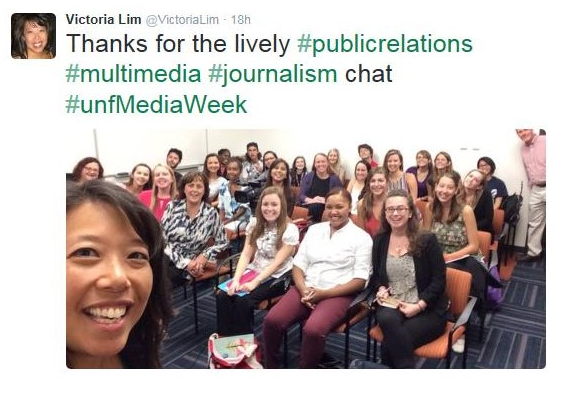
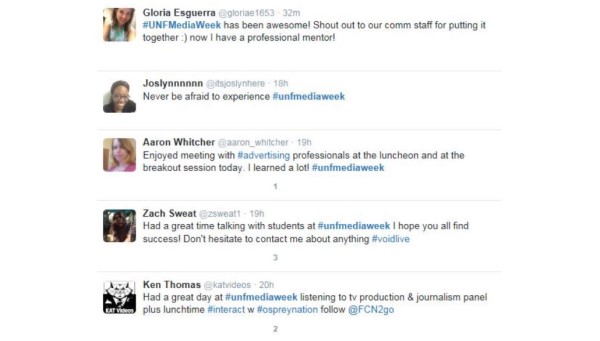
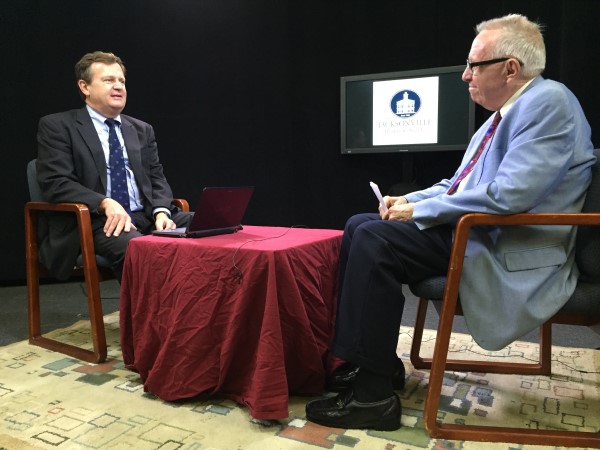 Jacksonville Historical Society President Edward Booth Jr. (left) was one of the first guests interviewed by Harry Reagan (right).
Jacksonville Historical Society President Edward Booth Jr. (left) was one of the first guests interviewed by Harry Reagan (right). Tracy Collins makes her living as Goodwill’s vice president of marketing and public relations, but she continues to participate in fundraisers and other community events.
Tracy Collins makes her living as Goodwill’s vice president of marketing and public relations, but she continues to participate in fundraisers and other community events.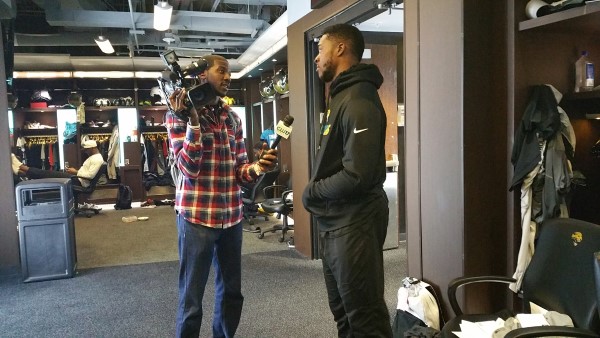
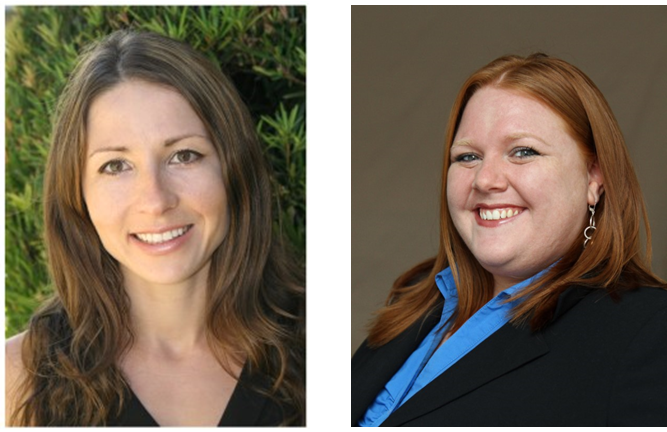 Dr. Nataliya Roman (left) and Dr. Margaret Stewart both study the intersection of war and communication.
Dr. Nataliya Roman (left) and Dr. Margaret Stewart both study the intersection of war and communication.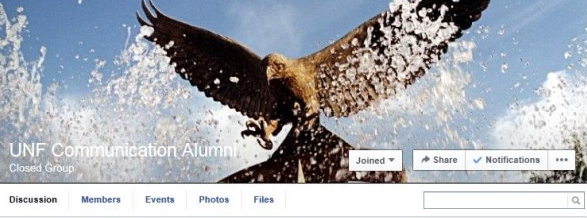 All communication alumni are invited to be a part of the conversation on Facebook.
All communication alumni are invited to be a part of the conversation on Facebook.